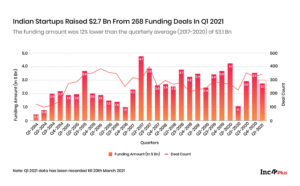Databases are in wide use today, powering the apps that people use every day for work and play. But they can be challenging to build, configure, and maintain — particularly as their usage continues to grow. According to a recent Redgate survey, 70% of companies now use more than one database in their stack, including on-premises and cloud databases. And much of the work remains manual, with only 51% saying that they’re automating parts of their database deployment process.
In search of an answer to these woes, Andy Pavlo co-founded OtterTune, a database optimization platform that today closed a $12 million series A led by Intel Capital and Race Capital with participation from Accel. OtterTune automates the process of database performance optimization, Pavlo claims, using AI to analyze and fine-tune settings to run databases ostensibly more efficiently at a lower cost.
“Databases are the most important component of every application stack. It doesn’t matter whether you are building a trendy Web3 app or a more traditional brick-and-mortar online storefront. At the end of the day, you need a database,” Pavlo told TC in an email interview. “But these systems have many facets … Open-source databases like PostgreSQL and MySQL are getting better each year, but more features means deployment challenges. As organizations continue to migrate more databases to the cloud, they invest in vendor tools to overcome issues, but this can lead to diminishing returns.”
Pavlo says that he was inspired to launch OtterTune after he became a professor at Carnegie Mellon University (CMU) in 2013. As a member of CMU’s Database Group and the Parallel Data Laboratory, he visited a major financial company — which shall remain unnamed, he insisted — to present research on automated methods for speeding up transaction processing databases. In conversations with executives, he was surprised at how much the company was paying administrators to do what he considered to be basic maintenance database tasks.
“The database administrators were almost boasting about how much they were getting paid to do trivial things to keep their databases running,” Pavlo said. “This was … right around the time powerful machine learning technologies became more accessible with open source frameworks and hardware acceleration. Thus, I decided to look at applying machine learning methods to try to help remove the laborious aspects of database systems to free up people to do more meaningful things with their time.”
With two of his students (now co-founders), Dana Van Aken and Bohan Zhang – Pavlo spun out OtterTune from CMU in 2020, originally with the goal of commercializing a tool to optimize database knob configurations. (In databases, “knobs” are configuration parameters that control some aspect of runtime behavior, such as caching policies.) Van Aken led the design and development of the prototype, which received a grant from Amazon, as an undergrad, while Bohan joined shortly after graduating from CMU.
Automating database management isn’t an incredibly original idea. At least a half-dozen vendors compete with OtterTune, including Akamas, Unravel Data, Pepper Data, EverSQL, Turbonomic, Opsani, Cloudhealth, and Vantage. (Microsoft, IBM, and Oracle use their own flavors of autonomous database, not to be outdone.) But Pavlo asserts that OtterTune is more developer-friendly than many of the products on the market while supporting a broader swath of database types.
OtterTune leverages algorithms to “understand” what better performance means for a particular cloud or on-premises database, factoring in workload spikes during the week — e.g., weekday versus weekend. The platform checks to determine a database’s peak workload periods and delivers “health checks” that warn OtterTune customers when databases are at risk of performance degradation.
“OtterTune’s machine learning algorithms make all their decisions based on system metrics, such as resource utilization and I/O usage … [They] identify database problems, such as cache misses and missing indexes, that can cause unexpected issues,” Pavlo explained. “One of the challenges that we’ve realized is that customers know something is wrong with their PostgreSQL or MySQL database, but they don’t know what is causing it. Databases are so complex and people are too busy to understand what is going on underneath the covers.”
It’s early days for OtterTune, but last year, Booking.com piloted an “academic” version of the technology with support for Oracle databases. While declining to reveal revenue figures, Pavlo said that the platform now has active users from “over 100” organizations.
The capital from the latest funding round, which brings OtterTune’s total raised to $14.5 million, will kickstart the development of expanded health checks, according to Pavlo — including database table-level health checks. It’ll also be put toward recruitment and hiring efforts, increasing the size of the company’s team from 15 to 30 by 2023.
“Knob tuning is important and it makes a big difference for many customers, but it is only one aspect of the lifecycle of a database,” he said. “In the same way that people turn to Amazon to manage the physical hardware beneath their databases, OtterTune will provide automated functionalities for within the database. By observing the workload and behavior of many databases, OtterTune’s machine learning algorithms will automatically ensure that any new database that comes along will run with the proper configuration, replication schemes, indexes, and query plans.”
When reached for comment, Nick Washburn, senior managing director at Intel Capital, said in a statement: “Efficient database management is critical to tech-enabled businesses’ successes. OtterTune is working to revolutionize the process by leveraging machine learning to automate an otherwise laborious, outdated operation. The OtterTune founders’ visionary mission is backed by the research they conducted at CMU and proven ability to help customers drive performance, lower cost, and ultimately ensure reliability of their databases.”










